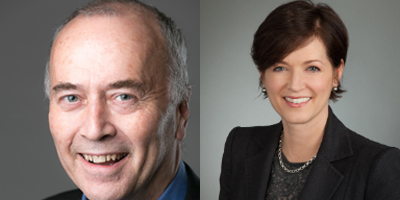Roger Urwin on culture, COVID and other challenges
Culture is a “fascinating subject dripping with issues”, according to Roger Urwin, who first wrote about the power of culture for fiduciary investors and their managers in the 1990s, having established the asset consulting arm of Willis Towers Watson in 1989. He remains one of the most influential advisors to big funds in the world. He addressed a four-day webinar series for the Thinking Ahead Institute (from June 29).
Urwin, who also founded Willis Towers Watson’s Thinking Ahead Group in 2002 and co-founded the Thinking Ahead Institute it spawned in 2015, alongside colleague Tim Hodgson, updated his work of the last few years for the webinar event – ‘Climb into the New View’ – to account for the big issues of the day: climate change, political unrest, inequality, COVID-19 and civil unrest over the ‘black lives matter’ movement.
‘Culture’ was a very soft and tacit term, he said, and you needed to start by defining it. Then you could assess it and shape it to fit your targets. ‘Shaping’ involved coming up with a ‘purpose’ for your organisation. And, as an investment consultant, he added: “profits are critical to support that purpose”.
There was a “terrifically positive dimension” flowing from COVID-19 which was to do with diversity and inclusion, he said. “Individuals have tended to feel more trust in their employers. Most people are doing well working from home and have a better employee experience… But the remote working model has different dimensions. A strong culture takes a lot of energy to maintain. If conversations are taking place virtually, then that energy level needs to go up. Also, with silos in organisations, people struggle to connect well. You need to try to reduce them,” he said.
How you see trust was important, too. It was a crucial value-creating element between colleagues. There was a level of trust needed for commitment, but distance – as from remote working – presented a challenge in this regard. Fostering trust took more effort. “It’s the same with the interaction with clients [fiduciary investors] . It will take more effort on the trust side without physical contact.”
He said that some of the governance you needed for pension funds and managers and the organisation design you needed, probably had to adapt. “Organisation agility is crucial,” he said. “An innovation culture takes you forward. It’s also about resilience. That’s about preparedness to deal with adversity. It’s another cultural feature.”
Urwin also interviewed Margaret Franklin, the president and chief executive of the CFA Institute, on the subject during the webinar series. She said that the impact on individual organisations of COVID-19 and the other big issues of the day, depended on their resilience and sustainability. “Leadership, collaboration and trust are what’s important,” she said. “The investment industry has done remarkably well with COVID,” she said. “We moved to working from home quite quickly, there were immediate responses to pricing gaps, such as between listed and private markets, and it was seen really early in where leadership was coming from… We observed that the most progressive asset managers were more resilient, more prepared and more agile in their response.”
The CFA Institute is monitoring a cohort of asset managers about their attitudes and actions on diversity and inclusion. Franklin said she believed they would be the big game changers in the future. On the study, she said: “It’s early days, but it seems those who were early to act were also more adaptable… I had the pleasure to interview Janet Yelland (former chair of the US Federal Reserve) recently and she said that inequality was the number one risk for the next decade.” Urwin added that the world was very fluid, and our perspectives had to be fluid too.
– G.B.










